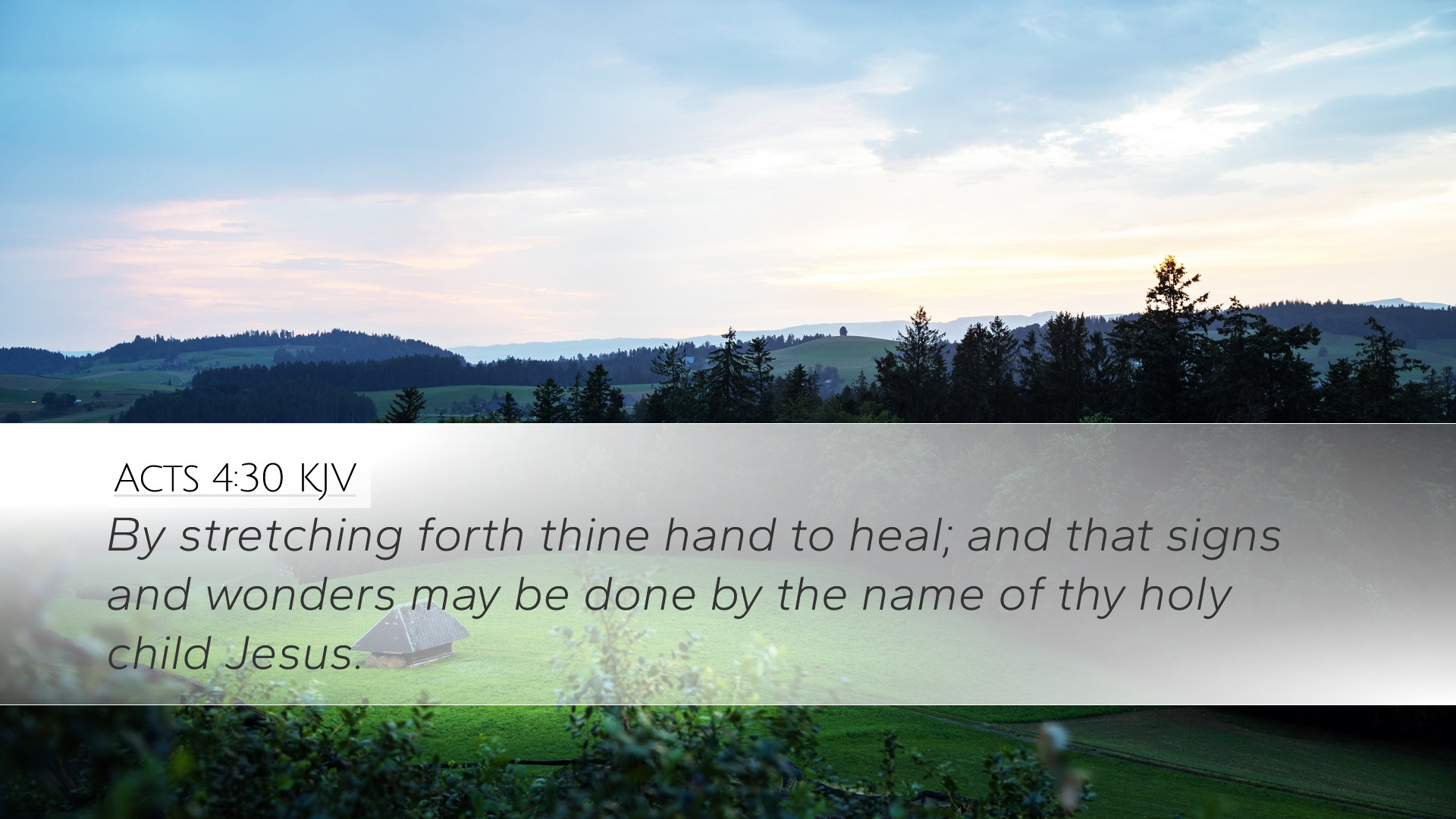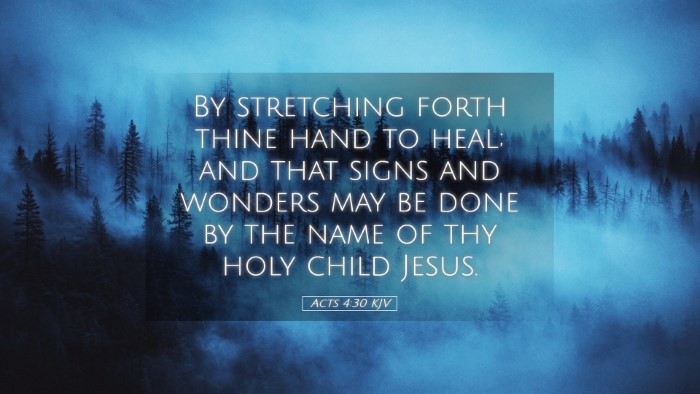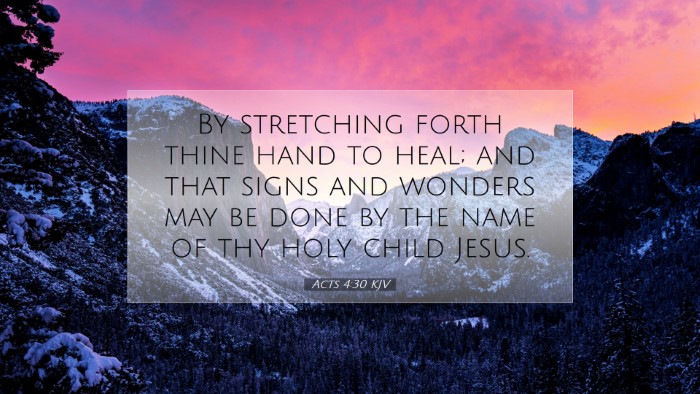Commentary on Acts 4:30
Verse: "By stretching forth your hand to heal; and that signs and wonders may be done by the name of your holy child Jesus."
Introduction
Acts 4:30 serves as a powerful prayer from the early church, reflecting their dependence on God and their boldness in the face of opposition. This commentary synthesizes insights from various public domain sources including Matthew Henry, Albert Barnes, and Adam Clarke. It aims to provide meaningful theological reflection for pastors, students, theologians, and Bible scholars.
Historical Context
After the resurrection of Jesus, His followers faced increasing persecution. Acts 4 recounts the trial of Peter and John before the Sanhedrin, where they boldly testified of Christ. The prayer that follows in verse 30 is part of a communal response to the threats they faced. Understanding this context is crucial for appreciating the urgency and conviction with which the early Christians prayed.
Theological Insights
- Divine Power and Healing:
Matthew Henry emphasizes that the request to "stretch forth your hand to heal" acknowledges God as the ultimate source of healing. It reflects the belief in divine intervention in the physical world, as healing is one of the primary signs of the Kingdom of God manifesting among His people.
- Signs and Wonders:
Albert Barnes notes that the phrase "signs and wonders" denotes miraculous acts that confirm the truth of the Gospel. The apostles’ plea demonstrates their understanding that such miracles were intended to draw attention to the name of Jesus and validate their message. This reinforces the unity between faith and works in the early apostolic community.
- In the Name of Jesus:
Adam Clarke remarks that the invocation of "your holy child Jesus" highlights the sacredness and uniqueness of Christ. The apostles recognized Jesus not only as their Savior but also as God's unique servant. This acknowledgment fosters a greater reverence and authority in their ministry, knowing that their actions are conducted under Christ’s name.
Prayer and Community
Acts 4:30 illustrates the communal nature of the early church's prayer life. Their unified request for boldness and miracles showcases the importance of collective supplication in times of crisis. Matthew Henry provides insight into the power of united prayer, suggesting that when God’s people gather to seek His favor, He is inclined to respond in extraordinary ways.
Boldness in Ministry
The urgency of their request for boldness in verse 29 is echoed in verse 30. They were acutely aware of the challenges presented by their hostile environment. Albert Barnes describes the significance of asking for divine boldness, noting that it isn’t merely about proclaiming the Gospel but doing so fearlessly despite persecution. This boldness is pivotal for the continuation of their mission.
Application for Today
- Faith in Action:
Modern believers can draw from this example by actively seeking God's intervention in circumstances that seem insurmountable. Just as the early church did, Christians today are encouraged to uplift their prayers for healing and miraculous interventions.
- Understanding Christ’s Authority:
The reference to Jesus as "your holy child" serves as a reminder of His divine authority. Contemporary Christians are called to rely on this authority in their own evangelistic efforts and to recognize that true impact comes through Christ alone.
- Strength in Unity:
As seen in Acts, prayer in unity is vital for the health of the church. The modern church should strive to gather together in prayer, being open to the miraculous workings of God amongst them, and fostering a spirit of boldness to communicate the Gospel message.
Conclusion
Acts 4:30 encapsulates powerful truths about God’s sovereignty, the proactive faith of the believers, and the integral role of prayer within the community of faith. It serves as a challenge to all Christians to boldly proclaim the Gospel, expect miracles in Jesus’ name, and engage in the concerted effort of prayer that unifies the body of Christ. In drawing from the rich insights of traditional commentaries, we find not only historical perspectives but also a renewed call to action in our own lives.


